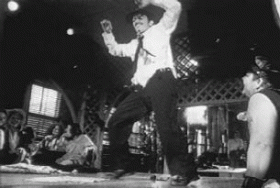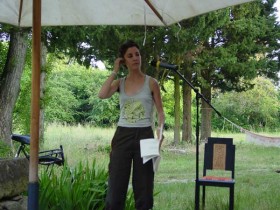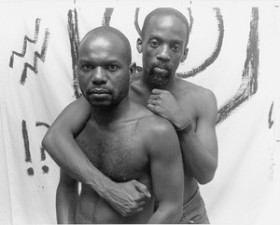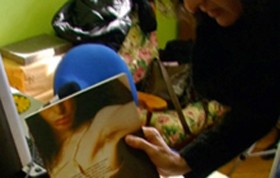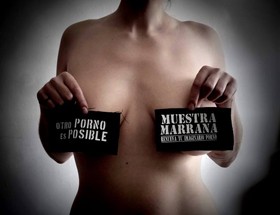Paris Is Burning is a 1990 documentary film directed by Jennie Livingston. Filmed in the mid-to-late 1980s, it chronicles the ball culture of New York City and the African American, Latino, gay and transgender communities involved in it. Many members of the ball culture community consider Paris Is Burning to be an invaluable documentary of the end of the “Golden Age” of New York City drag balls, as well as a thoughtful exploration of race, class, and gender in America.
The film explores the elaborately-structured Ball competitions in which contestants, adhering to a very specific category or theme, must “walk” (much like a fashion model’s runway) and subsequently be judged on criteria including the “realness” of their drag, the beauty of their clothing and their dancing ability.
Most of the film alternates between footage of balls and interviews with prominent members of the scene, including Pepper LaBeija, Dorian Corey, Anji Xtravaganza, and Willi Ninja. Many of the contestants vying for trophies are representatives of “Houses” (in the fashion sense, such as “House of Chanel”) that serve as intentional families, social groups, and performance teams. Houses and ball contestants who consistently won in their walks eventually earned a “legendary” status.
Jennie Livingston spent seven years making Paris Is Burning, concentrated on interviews with key figures in the ball world, many of whom contribute monologues that shed light on the ball culture as well as on their own personalities. In the film, titles such as “house,” “mother,” and “reading” emphasize how the subculture the film depicts has taken words from the straight and white worlds, and imbued them with alternate meanings, just as the “houses” serve as surrogate families for young ball-walkers whose sexual orientations have sometimes made acceptance and love within their own families hard to come by.
The film also explores how its subjects dealt with the adversity of racism, homophobia, AIDS, and poverty. For example, some, like Venus Xtravaganza became sex workers, some shoplift clothing, and some were thrown out of their homes by homophobic parents. One was saving money for sex reassignment surgery. Through candid one-on-one interviews the film offers insight into the lives and struggles of its subjects and the strength, pride, and humor they maintain to survive in a “rich, white world.”
Drag is presented as a complex performance of gender, class and race, in which one can express one’s identity, desires and aspirations along many dimensions. The African American and Latino community depicted in the film includes a diverse range of identities and gender presentations, from gay men to butch queens to transsexual women.
The film also documents the origins of “voguing”, a dance style in which competing ball-walkers freeze and “pose” in glamorous positions (as if being photographed for the cover of Vogue).
*Jennie Livingston (1962) is an American director born in Dallas, Texas and grew up in Los Angeles. She graduated from Yale University in 1983, where she studied photography, drawing, and painting with a minor in English Literature. She lives in Brooklyn, New York. Livingston is currently directing a documentary feature, Earth Camp One, a first person about grief, loss, and a hippie summer camp in the 1970s, also a broader essay on social and cultural attitudes about death and impermanence, was begun on a 2000 Guggenheim fellowship and was also partially funded by Netflix. She is also developing Prenzlauer Berg, an ensemble film set in the art worlds of New York and East Berlin in the late 80s which was researched on a grant from the German Academic Exchange (DAAD). She has appeared in others’ films, speaking about film and filmmaking, including “Fabulous! The Story of Queer Film,” created for the cable channel IFC Television in 2006. In 2010, she was the Fran and Ray Stark Distinguished Fellow in Film at Connecticut College.
